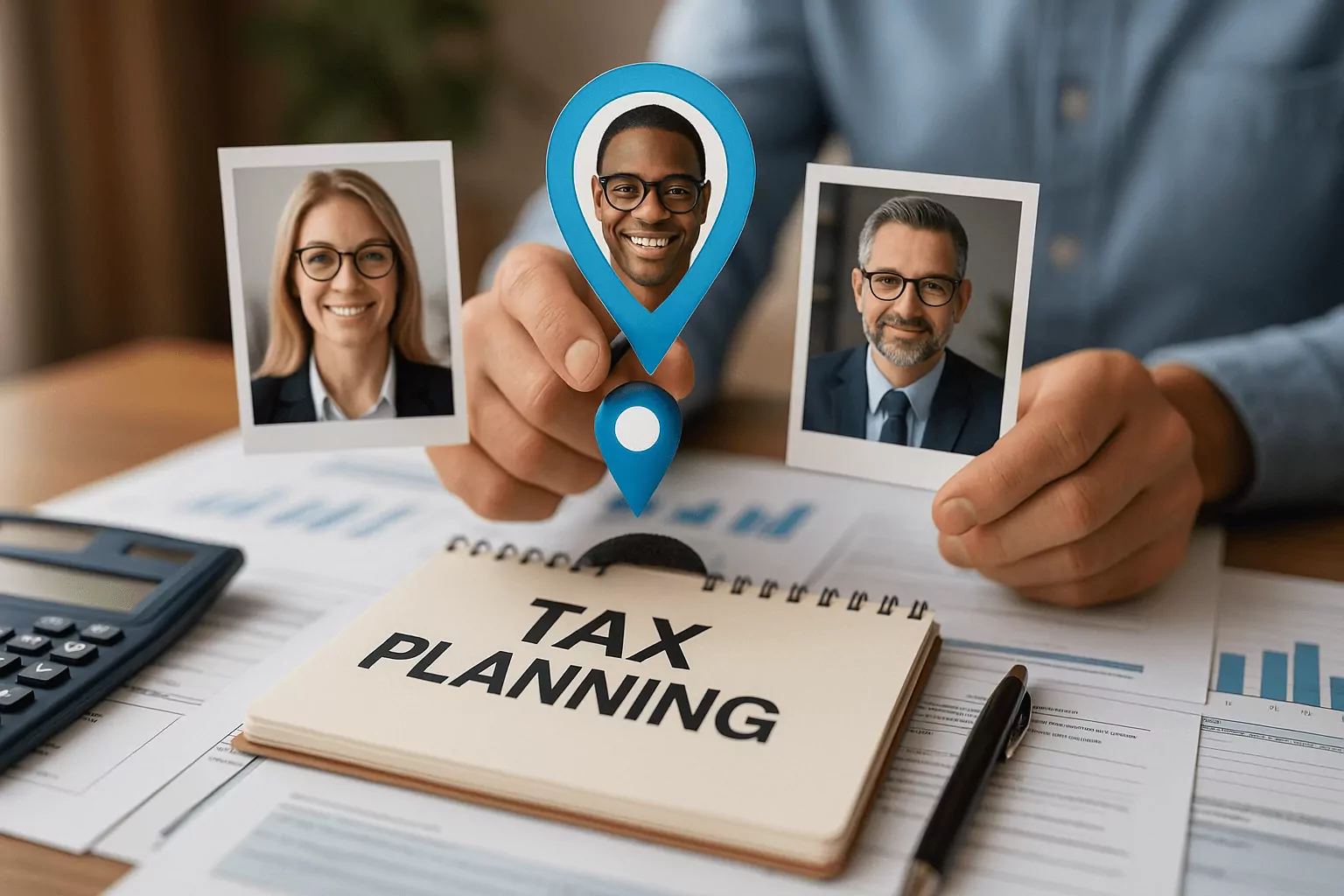Top Tips for Choosing the Best Tax Planner Near Me
Essential Criteria for Selecting the Best Local Tax Planner to Maximize Your Savings and Simplify Tax Season

Introduction
Choosing the right tax planner can significantly impact your financial health, ensuring you maximize savings and stay compliant with tax regulations. With so many options available, finding the best tax planner near you requires careful consideration. A qualified tax advisor can help individuals and businesses navigate the complexities of tax laws, create effective tax strategies, and avoid costly mistakes. It's essential to understand the key factors to look for when selecting a tax planning expert. This article will provide practical tips for choosing a local tax consultant who can meet your specific needs, ensuring you have the best support throughout the tax year.
Main Content
1. Assess Your Needs
The first step in finding the best tax planner near you is to assess your specific tax needs and goals. Are you an individual with straightforward tax requirements, or do you have a complex financial situation involving multiple income streams and investments? Understanding your needs will help you narrow down your search to tax planning experts who specialize in your area of concern. For instance, if you run a small business, you might require a tax advisor who has experience with business tax preparation services and can help you minimize your tax liability.
Consider creating a list of questions and concerns you have about your taxes. This will guide your discussions with potential planners and help you evaluate their expertise. A certified tax planner should be able to address your specific concerns and explain how they can assist you in achieving your financial goals. Moreover, don't hesitate to ask for examples of how they have helped clients in similar situations to yours.
2. Verify Credentials and Experience
When choosing a tax planner, it's crucial to verify their credentials and experience. Look for professionals who are certified tax planners or hold relevant qualifications such as CPA (Certified Public Accountant) or EA (Enrolled Agent). These credentials indicate that the advisor has undergone rigorous training and is knowledgeable about tax laws and regulations. Additionally, consider the planner's experience in the industry, particularly in relation to your tax situation.
For instance, if you are a freelancer or a small business owner, seek out a tax advisor who has a proven track record of working with clients in similar positions. They should be familiar with the unique deductions and credits available to your situation. You may also want to check online reviews or ask for recommendations from friends and family to gauge the planner's reputation and reliability.
3. Evaluate Communication and Availability
Communication is vital in any professional relationship, especially when it comes to tax planning. The best tax planner near you should be approachable, willing to answer your questions, and explain complex tax concepts in a way that you can understand. Assess how quickly they respond to your inquiries and whether they take the time to clarify any doubts you may have during your initial consultations.
Additionally, consider their availability during the tax season. Some tax planners may have a heavy workload, which could lead to delays in addressing your concerns when you need them the most. Choose a tax planning expert who can dedicate the necessary time to your case and provide timely advice, ensuring you feel supported throughout the entire tax process.
4. Understand Their Fee Structure
Before committing to a tax planner, it is essential to understand their fee structure. Tax planning services can vary significantly in cost, depending on the complexity of your situation and the services provided. Some tax advisors charge by the hour, while others may offer a flat fee for specific services. Make sure you discuss the costs upfront to avoid any surprises later on.
When evaluating fees, consider the value you will receive in return. A slightly higher fee may be worth it if the planner has a proven track record of maximizing savings and providing comprehensive tax strategies. Always ask for a detailed breakdown of their services included in the fee, so you can make an informed decision that aligns with your budget.
Conclusion
Finding the best tax planner near you is essential for effective tax management and maximizing your financial well-being. By assessing your needs, verifying credentials, evaluating communication, and understanding fee structures, you can make an informed decision that aligns with your goals. Remember that a qualified tax planning expert can provide invaluable insights and support, helping you navigate the complexities of the tax system. For personalized assistance, consider reaching out to Premier Tax and Business Services at 314-669-7300 or visit www.premiertbs.com. Start your journey toward effective tax planning today!
Frequently Asked Questions
What services does a tax planner typically offer?
A tax planner typically offers a variety of services, including tax preparation, tax strategy development, and ongoing financial advice. They can assist with identifying potential deductions, credits, and tax-saving strategies tailored to your unique situation. Additionally, many tax planners provide year-round support, helping clients navigate changes in tax laws and regulations that may impact their financial planning. Some may also offer estate planning and retirement tax strategies, ensuring comprehensive guidance throughout your financial journey.
How can a tax planner help me save money?
A tax planner can help you save money by identifying deductions and credits that you may not be aware of, ensuring you take full advantage of available tax-saving opportunities. They can also help you develop a tax strategy that minimizes your overall tax liability, such as recommending tax-efficient investment options or advising on the timing of income and expenses. By working with a certified tax planner, you can navigate complex tax laws more effectively, which can result in significant savings over time.
When is the best time to hire a tax planner?
The best time to hire a tax planner is well before tax season, ideally at the start of the fiscal year or when your financial situation changes significantly. Early engagement allows the planner to develop a comprehensive tax strategy tailored to your specific needs, ensuring you can take full advantage of tax-saving opportunities throughout the year. However, even if tax season is approaching, it's not too late to seek professional guidance to help you minimize your tax liability and ensure compliance with regulations.

